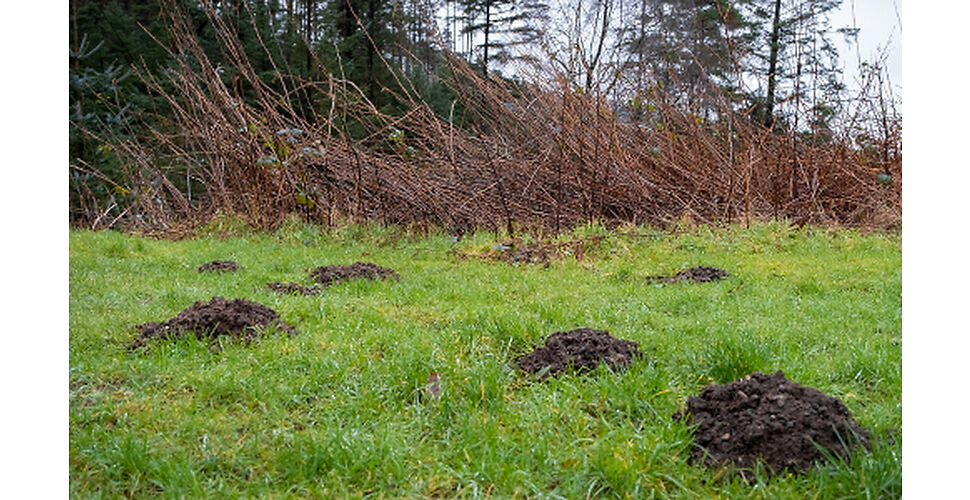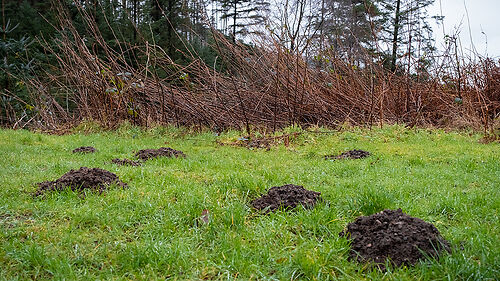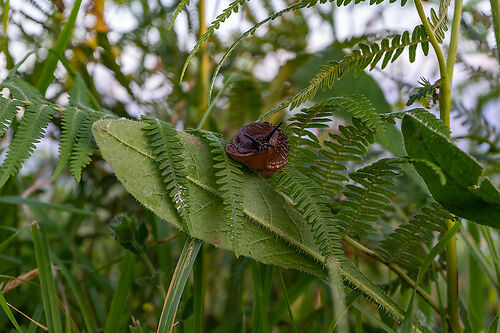
March 22nd, 2023 by
Spring is here and with it comes some of the most common pests such as slugs, aphids, carpet beetles and ants. These pests can invade your home and wreak havoc in your garden, as they eat both the foliage and flowers of plants. In this blog, we will discuss how to get rid of them and how to prevent them in the first place.
Knowing what pests are most active in your area can help you prevent them and treat them before they get out of hand.
Knowing what pests are most active in your area can help you prevent them and treat them before they get out of hand. If you know that fleas are a problem every spring, for example, then it makes sense to do everything possible to keep them away from your pets before they have a chance to multiply.
If you're not sure what pests are active in your area, ask around! Your neighbours may have had similar issues with certain insects or animals and might be able to provide some helpful advice on how to handle the problem. For now, however, we will take some time to discuss the most common pests for this time of year.
Moles
Moles are small mammals that live underground. They eat insects, worms and other small animals. While they won’t cause too much harm to your lawn they will, however, create mounds that can be visually unappealing especially if you spend a lot of time keeping your yard looking its best. They can make this very quickly so if left untreated your yard can be overrun with mounds in no time at all.
Moles are active in spring and summer so it's important to keep an eye out for them at this time of year if you want to avoid having them invade your yard! You can deter moles by planting daffodils or marigolds as these are a natural well to repel them, this is thought to be due to the bulbs being toxic so moles try to avoid them. You can also create a solution using castor oil to spray the area this will coat the prey and makes them taste bad forcing them to move on to new hunting grounds. However, if you are unable to control the issue this way it is recommended to seek out the help of a professional.

Aphids
Aphids are a common garden pest. These small, soft-bodied insects suck the sap from plants, which can cause stunted growth, curling and yellowing of leaves and premature leaf drop. They're easy to spot: Aphids are usually green or black with bulging bodies that appear to be covered in cottony wax. They may also have wings (called winged aphids), but most don't fly--they simply crawl around on plants until they find something to eat!
The best way to control aphid populations is by introducing natural predators into your garden such as ladybugs or lacewings who feed on them. If there is only a small number of aphids then simply using a strong spray of water will also remove them, for more severe infestations you can use a soap and water solution then spray it on the infested leaves, ensuring to cover every part including the under the leaf where eggs and larvae are.
Insecticides are also another option, they are incredibly fast and effective unfortunately they will also kill useful bugs and insects that are beneficial to your yard, so this should only be used as a last resort.
Earwigs
Earwigs are among the most common garden pests and can be found just about anywhere, from the suburbs to forests. These brownish insects have pincer-like jaws and long antennae that they use to search for prey in leaf litter or under rocks.
Earwigs can do minor damage to plants by chewing on leaves, but they don't typically cause serious damage unless there are many of them feeding on one plant at once. They also eat other insects such as caterpillars or beetles--so if you see holes in your favourite tomatoes but no earwig carcasses nearby, it's possible that something else ate them first!
The best way to prevent earwigs from entering your home is simply by keeping doors shut tight (or installing door sweeps). Also keep windows closed when possible because these insects aren't strong flyers; they tend only to go somewhere else if invited inside by an open window or door! If you notice an infestation after opening up windows after winter weather--or if you have issues with pests getting into kitchen cabinets--you may want to consider using sticky traps around baseboards instead of sprays designed specifically for killing earwigs since these chemicals could harm pets who might come into contact with them later down the road."
Cutworms
Cutworms are the larval stage of various moths, but they're all notorious for their voracious appetites. Cutworms feed on stems and leaves, damaging plants by cutting off their growth at ground level. They're most active in spring and summer--you'll see them as small piles of cut vegetation on your lawn or garden beds.
Cutworms can be controlled with a chemical spray but as such, this can also risk killing the more useful pest in your garden. A more natural method is to introduce Nematodes to your garden, these will target pests and insects that will damage your lawn such as Cutworms without damaging plant life.
Slugs
The first pest that you may encounter this spring is the slug. Slugs are a common garden pest that can be destructive to your plants. They like damp conditions and eat both the foliage and flowers of plants, which makes them particularly problematic in gardens. If you're not fond of using chemicals in your natural garden, try using copper tape or wires to deter slugs from entering your garden beds. Since these pests like to hide under plants during the day, keep an eye out for them so that you can remove any hiding places for them before they become too large a problem for your garden plants!
You can also use organic slug pellets to keep them away from the plants you don’t want them munching on without affecting the plants themselves. Another great and natural way to keep slugs away is to use sharp mulch this will create a barrier that will prevent them from getting to your precious plants!

These are some of the most common pests to keep an eye out for this spring. It’s better to tackle a problem sooner rather than later, so if you notice the signs don’t hesitate to begin treatment!
Comments
Leave a reply
Your e-mail address will not be published. All fields are required


